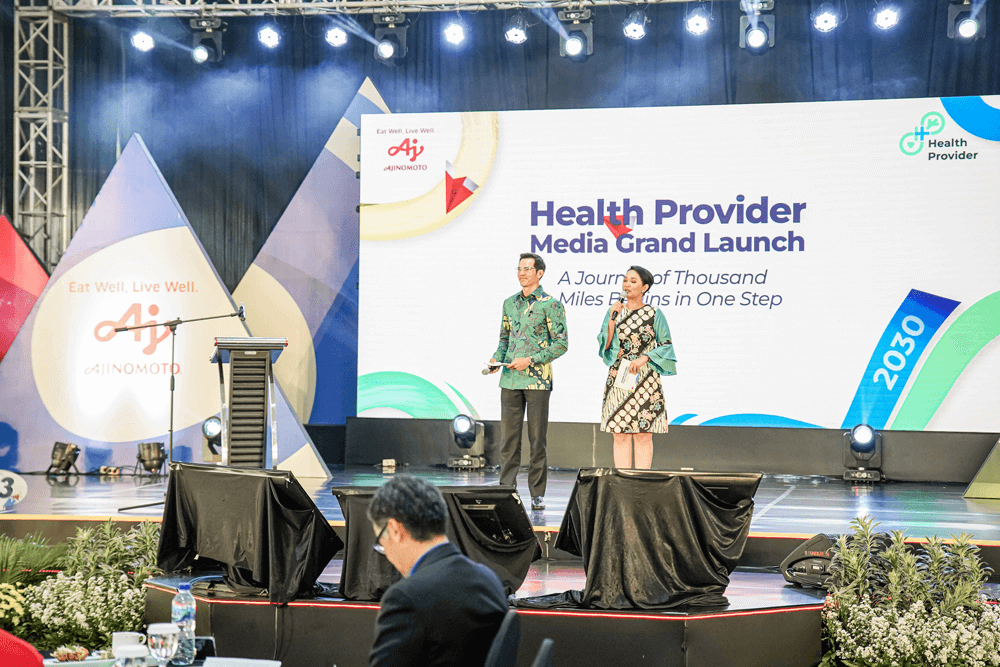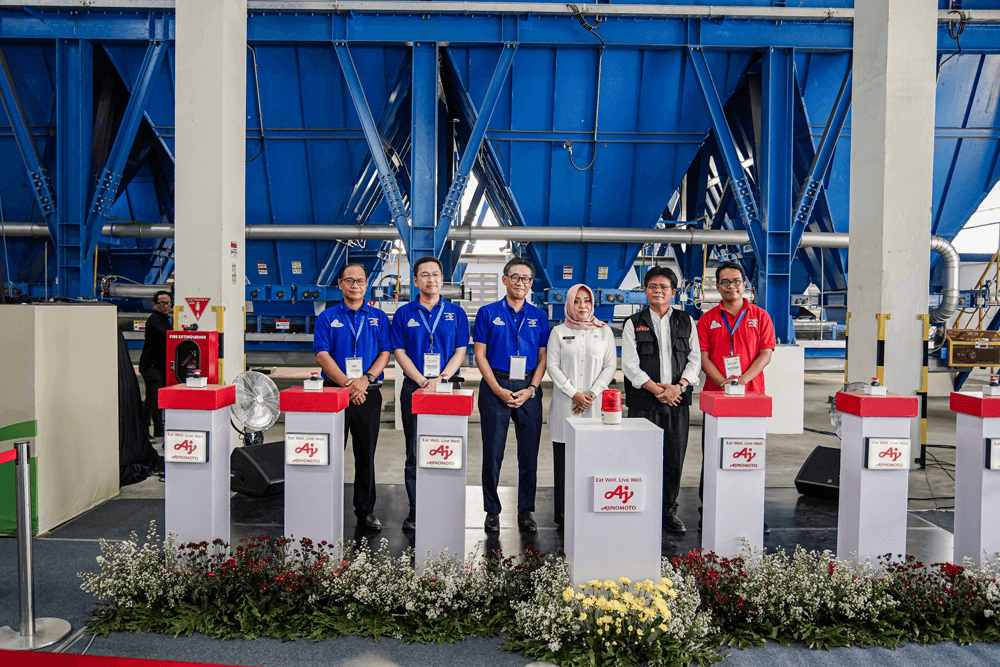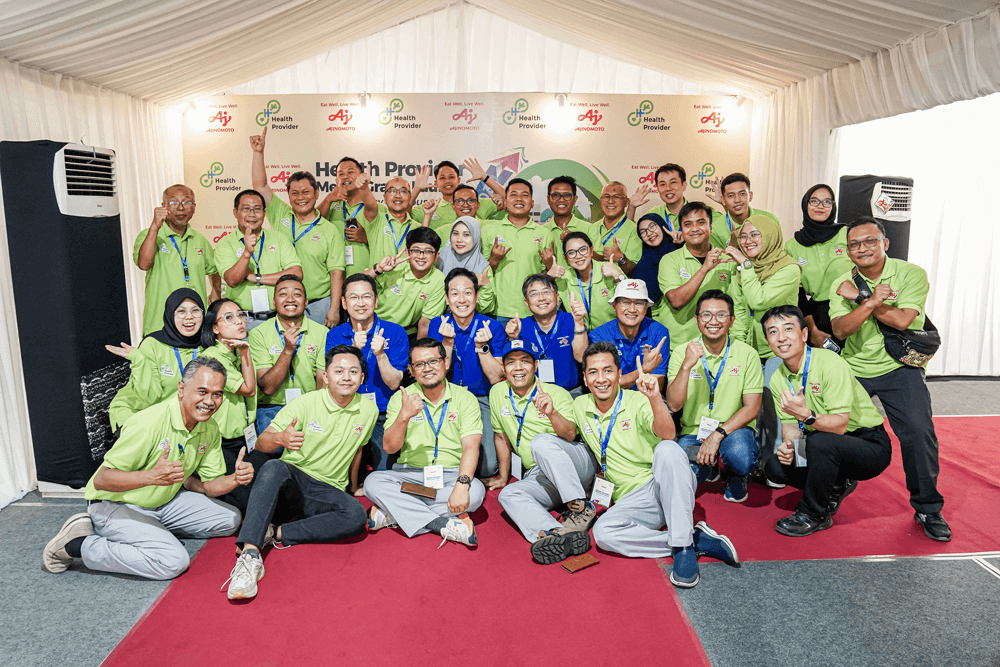Ajinomoto's journey began with the discovery of the taste "umami" in 1908 by Dr Kikunae Ikeda in Japan. He discovered that the main component of umami is glutamic acid, one of the amino acids. "Creating delicious spices at affordable prices and turning simple but nutritious food into delicious food" - is the dream of him and Saburosuke Suzuki II, founder of the Ajinomoto Group. Dr Ikeda's ideals spread throughout the world to Indonesia. Present in Indonesia since 1969, PT AJINOMOTO INDONESIA (Ajinomoto) contributes to better health for Indonesian families.
Through its global slogan "Eat Well, Live Well", Ajinomoto continues to make a major contribution to improving the quality of life of Indonesian people while moving towards a sustainable, environmentally friendly business. The image of a company that cares about health and environmental issues in Indonesia adheres to the Ajinomoto Shared Value (ASV), a principle where the Company will create social value for society while creating economic value for the Company.
Health Provider Ajinomoto
Ajinomoto's step to transform all its employees into Health Providers is part of Ajinomoto Global Group's real action to achieve its vision in 2030, namely to increase the healthy life expectancy of 1 billion people throughout the world and reduce 50% of the company's environmental impact, including on the mother earth. The journey towards this vision begins by equipping all Ajinomoto employees with information and knowledge regarding family health, clean and healthy living habits and maintaining the surrounding environment. Armed with the information and knowledge obtained, all employees work together to spread these good habits from their respective families. Ajinomoto believes that all good habits start from learning within the family as the smallest environment.
Health Provider Media Grand Launch
2023 will be a special year for Ajinomoto considering that its Health Provider program, which has been running for almost a year, has started to be officially launched. This activity was carried out at the Ajinomoto Factory in Mojokerto. This activity was attended by media leaders and journalists from dozens of Indonesian and Japanese media, city and provincial governments, influencers, local community representatives and PKK administrators in the cities of Mojokerto and Surabaya.
"Ajinomoto Group is committed to improving the welfare of people throughout the world through the Ajinomoto Shared Value (ASV) initiative which aims to enable us to live by the Ajinomoto principle, namely "Eat Well, Live Well". Not only does it create economic value, Ajinomoto also creates social value through its business activities by being actively involved in addressing social issues and problems such as global sustainability, food resources, and health and welfare. Health Provider is a company slogan that we created which is meaningful for human health, earth health and public health. "We dedicate our products and all sustainability activities to Indonesia," said Shinichi Matsumoto - President Director of PT AJINOMOTO INDONESIA in his speech at the start of the event.
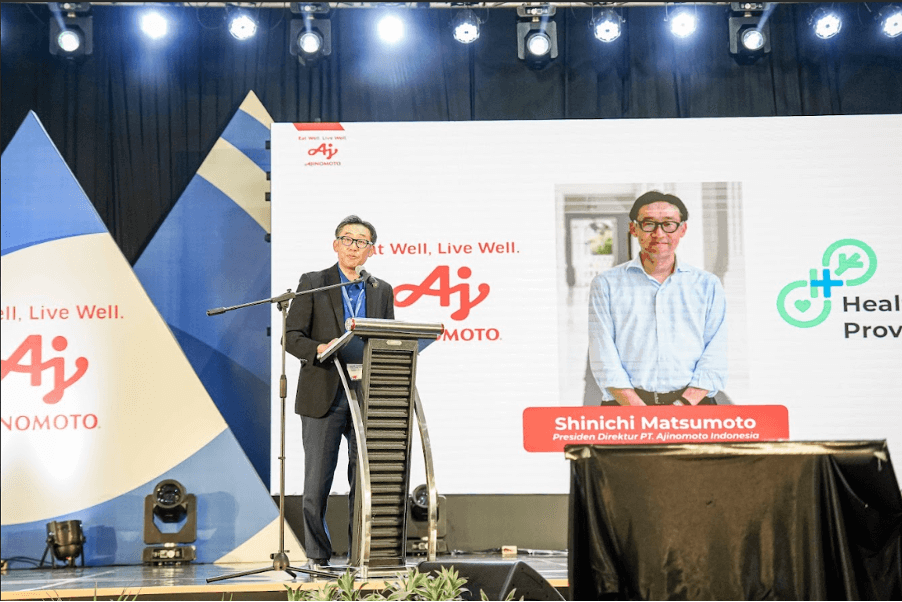
Initiated at the end of last year, Health Provider Ajinomoto has in fact succeeded in creating an active and participatory initiative that is able to support the government in overcoming various health problems and environmental impacts. Not just within the employee environment, Ajinomoto is now also strengthening its commitment by assisting the Indonesian people in the health sector, especially family health.
On the occasion of grand launching, Ajinomoto also held a talk show session related to human health and the environment, by presenting experts in their fields. We hope that the steps we have implemented are in accordance with the directions and expectations of the Indonesian government. Together with representatives from BKKN and nutritionists, we discussed nutrition for Indonesian children, solving the problem of stunting so that together we can improve the nutrition of the nation's children as a golden generation that needs attention.
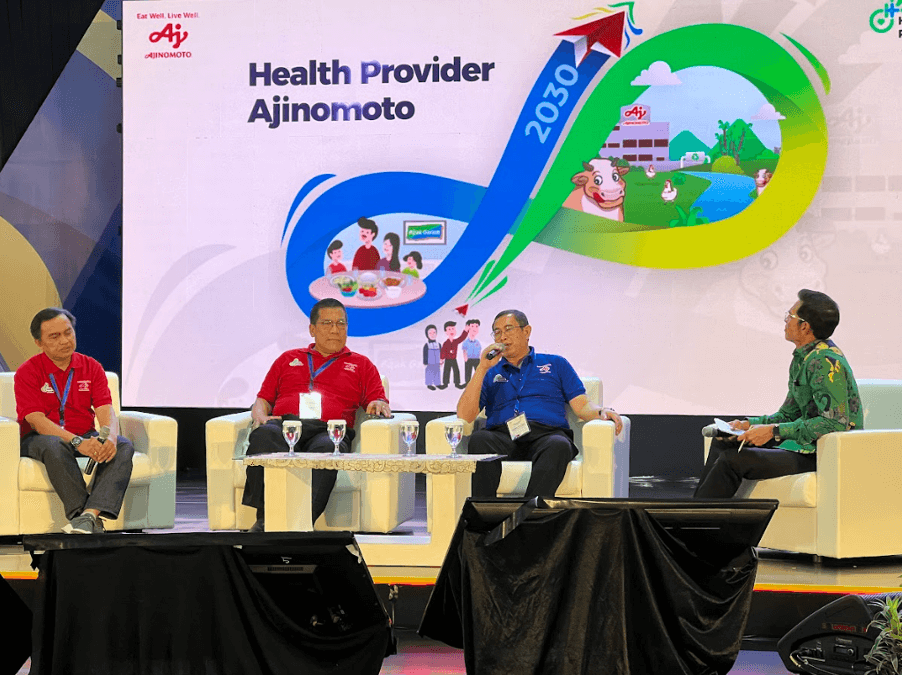
Ajinomoto has carried out several activities starting several years ago, such as educational activities for housewives. Ajinomoto collaborates with Family Welfare Development (PKK) mothers in various cities to hold activities that we call GEMBIRA (Nutritious Cooking Movement with Ajinomoto Health Providers). More than 3,500 mothers received education about the importance of balanced nutrition, and how to regulate balanced nutritional intake for the family. After reaching 17 cities in Indonesia, this year GEMBIRA will also continue, to more cities in Indonesia. Ajinomoto believes that home is the first step in forming good habits. It is hoped that GEMBIRA participants can pass on the information they obtain to share with their families and surrounding environment to improve better nutrition.
Ajinomoto also took similar steps in Jakarta, Karawang and Surabaya. Packaged in the MAPAN Environment (Mitra Health Provider AjiNomoto) activity, Health Provider Ajinomoto collaborates with local Community Health Centers and Subdistricts to share the importance of arranging a balanced nutritional menu in the family as a way to prevent stunting among mothers. This program also collaborates with experienced culinary entrepreneurs to provide guidance to culinary MSMEs.
For Ajinomoto, good nutrition is a big thing to highlight and is an important asset for the growth of future generations. The School Lunch Program (SLP) is one of Ajinomoto's Health Provider initiatives in order to prevent malnutrition problems and is implemented in several selected Islamic boarding schools. Through this program, there have been positive results with improvements in the nutrition of the students. It doesn't stop there, Ajinomoto also collaborates with Dept. IPB Community Nutrition & the Indonesian Ministry of Religion to present an SLP guidebook containing nutrition education, program implementation tips, and various applications for delicious, balanced nutritional menus.
Ajinomoto collaborated with a team of researchers and academics from one of the state universities in Indonesia to conduct the "Elderly Project" research. The research, which was carried out from October 2021 to January 2022, at the Tresna Werdha Social Service Center (BPSTW) Abiyoso Unit and BPSTW Budi Luhur – Yogyakarta, aims to find out whether the provision of a food program with a high content of protein, energy, vitamins and minerals but low in salt , sugar and fat, can improve the nutritional status of the elderly which leads to an improvement in their quality of life. The Elderly Project research conducted with Ajinomoto showed that, after being given a feeding program to the elderly that followed the Smart Salt concept, there was a significant reduction in blood sugar levels. This is shown in the percentage of elderly men who had an HbA1C value in the diabetic group, namely 52.9%, down to 23.5% and an increase in the normal group with a percentage of 14.7%, rising to 47.1%.
The launch of the Health Provider program is proof of Ajinomoto's seriousness about human and environmental health. Matsumoto explained that the Health Provider program contains various initiatives that focus on improving human health and the health of the planet. The Grand Launching of Health Provider which was held at the PT Ajinomoto Indonesia factory in Mojokerto Regency was also attended by the Deputy for Research and Development Training at BKKBN Prof. Muhammad Rizal Martua Damanik and Deputy Director of the Green Industry Center of the Ministry of Industry, Achmad Taufik. On this launch day, all journalists were invited to visit Ajinomoto's first factory in Indonesia (Mojokerto). They can see firsthand the working climate and healthy environment of Ajinomoto and become official witnesses the operation of Ajinomoto biomass boiler.
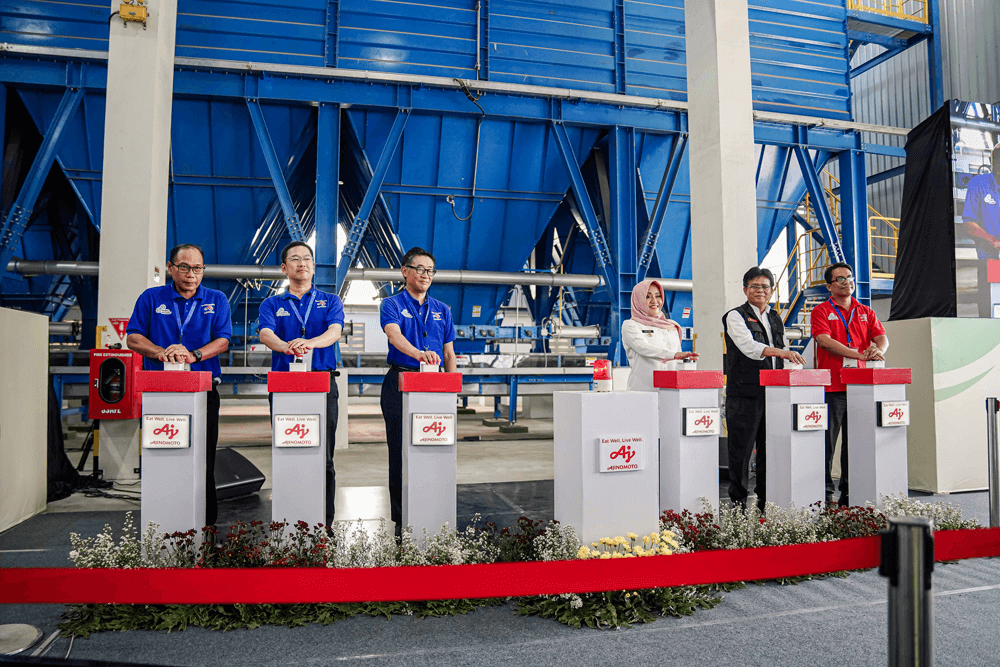
"This Biomass Boiler is part of Ajinomoto's commitment as a Health Provider to help achieve the UN Sustainable Development Goals. The Ajinomoto Group has introduced biomass in ten of its production facilities around the world to reduce carbon emissions and combat climate change. The use of biomass at the Ajinomoto factory in Mojokerto has helped reduce carbon emissions, which have now been reduced by up to 36%. Conversion of boiler fuel using renewable energy is one of the steps taken by Ajinomoto to reduce carbon emissions by up to 60% by 2030," said Samsul Bakhri - Director of PT AJINOMOTO INDONESIA when interviewed in the Biomass Boiler area.
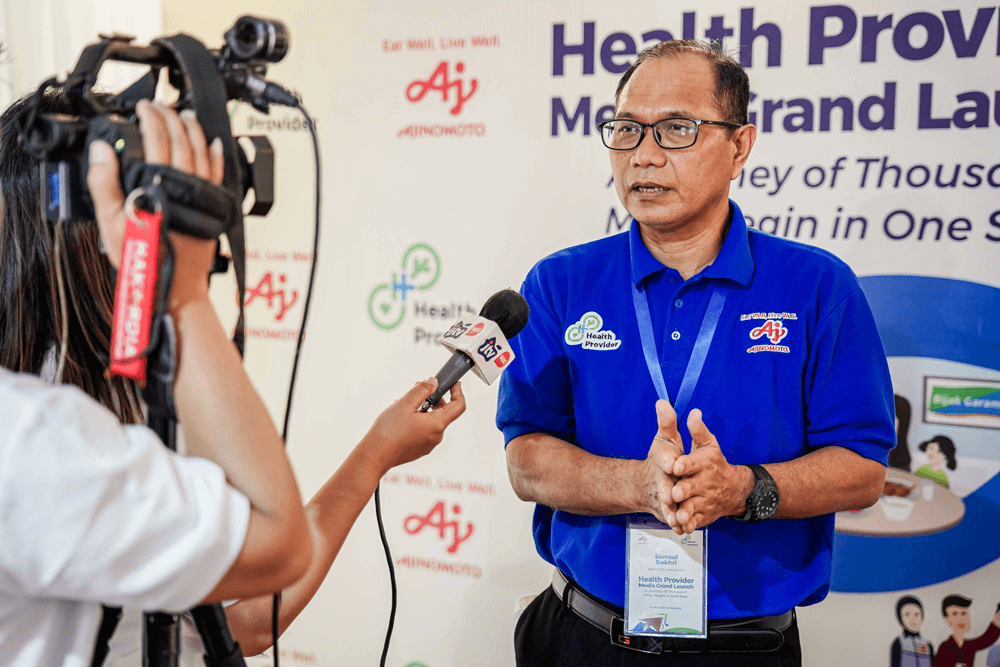
Health Provider Ajinomoto's concern is also proven through several other environmentally friendly initiatives. One of Ajinomoto Indonesia's factories in Mojokerto succeeded in reducing water use by up to 35% which then developed an environmental maintenance initiative through Waste Water Management Improvement. Not only that, this factory in East Java also always implements reduce, reuse, recovery and recycling activities for most of the factory's activities.
“As we know, carbon emissions are one of the contributors to air pollution which has a negative impact on human health and the environment. For better air, Ajinomoto participates in reducing carbon emission levels in Indonesia with a target of reducing 231.32 million CO2 (carbon emissions) by reducing fuel consumption for all transportation at work, cutting electricity use, and procuring biomass boilers. "Procuring a biomass boiler is one of the steps taken by Ajinomoto to achieve the target of stopping the use of coal by 2025, by reducing greenhouse gas (GHG) emissions by 2030," said Matsumoto.
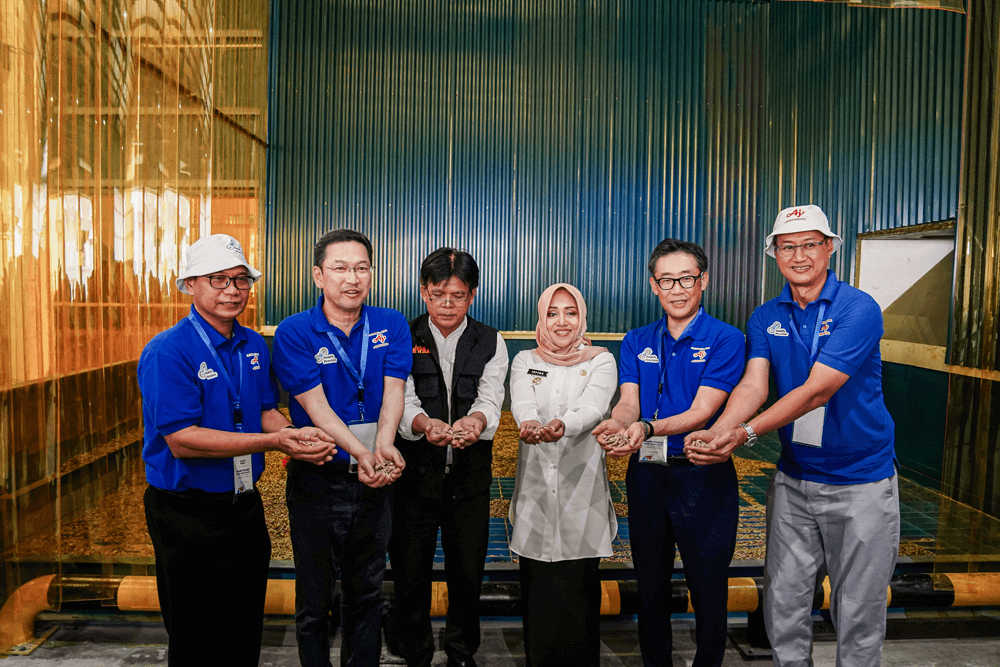
Plastic waste is still one of the environmental problems in Indonesia today. Based on data from The World Bank 2021, Indonesia produces around 7.8 million tons of plastic waste every year. A total of 4.9 million tons of plastic waste is not managed properly. Concerned about this, Ajinomoto does not remain silent and takes several concrete steps to keep Indonesia green.
The MSG AJI-NO-MOTO® brand, which has been accompanying Indonesian families for more than 50 years, has contributed to overcoming the problem of plastic waste accumulation by reducing up to 30% the use of plastic material in paper packaging variants. Apart from that, the Masako® brand also reduces plastic material by reducing the use of plastic material in inner plastic packaging.
In collaboration with one of the recycling start-up companies in Indonesia, Ajinomoto launched a waste station which took its first location at Sememi Market - Surabaya. This platform is very easy to use for the public to deposit waste. This Waste Station facility was donated to the Surabaya City Environmental Service to be managed and used by the surrounding community.
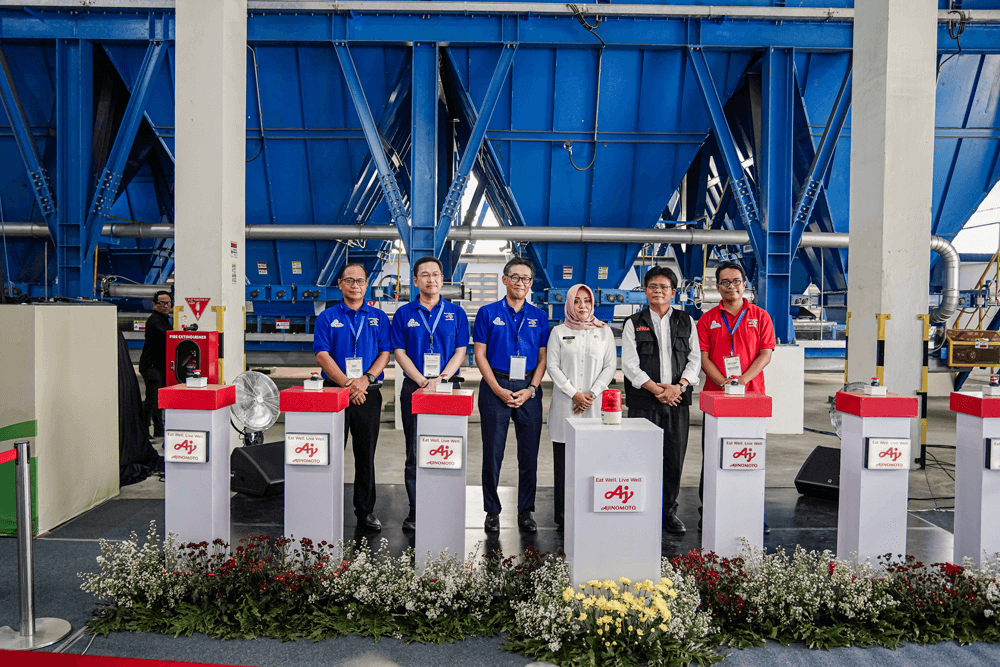
Ajinomoto also developed the remaining Monosodium Glutamate (MSG) production process into various alternative products, for example animal feed additional supplement (Fermented Mother Liquor/FML) and foliar fertilizer (AJIFOL). Apart from producing this by-product, Ajinomoto is also trying to help farmers in spraying AJIFOL liquid fertilizer using drone technology as an effective and efficient way to use water, human resources and save costs to support sustainable agricultural cultivation. After going through trials, the application of drone technology was proven to be very efficient and only took around 15 minutes per hectare with an amount of water of around 16 liters per hectare, compared to manually which took around half to 1 day with an amount of water of around 200 liters per hectare.
"Hopefully what I have said can provide a new perspective on the importance of maintaining a balance between health and eco-friendly activity. Ajinomoto hopes that the Ajinomoto Health Provider initiative carried out by Ajinomoto can be an inspiration to the wider community for a better Indonesia. Because we are Health Providers, We Care," concluded by Matsumoto.
